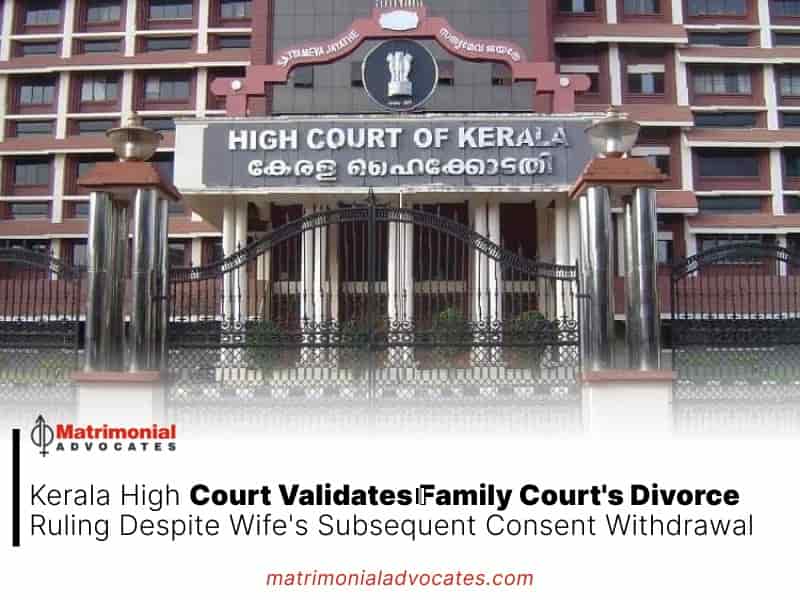
The Kerala High Court upheld the Family Court’s decision to grant divorce despite the wife’s later withdrawal of consent, citing the mutual agreement as the basis for dissolution of marriage.
In an appeal lodged against the Family Court’s ruling under Section 10 A of the Divorce Act, 1869, the wife contested the dissolution of her marriage with her husband. This followed a series of legal disputes between the couple, ultimately resolved through mediation. An agreement delineating the terms of settlement was reached, and the husband disbursed approximately Rs. 6 lakhs to the wife as stipulated.
However, the wife subsequently retracted her consent for mutual divorce, alleging that she had signed the mediation agreement under duress and was unwilling to proceed with the dissolution by mutual consent.
The Division Bench of Justice Anu Sivaraman and Justice C. Pratheep Kumar held, “In the instant case also, several litigations are pending between the parties before various courts including petition for divorce, custody of child and patrimony. All those cases were settled in mediation and the parties agreed to dissolve their marriage by mutual consent. Accordingly, the parties filed a joint petition for divorce, received part payment, disposed of the pending cases and thereafter at the final stage when the case was taken up for evidence to record the consent of the parties, the appellant withdrew her consent.”
The Appellant-Wife was represented by Attorney Bobby Rapheal C., whereas Attorney Sheeba Mariam J. represented the Respondent-Husband.
The Court further held, “In the above circumstances, the present case is one coming within the ambit of the decision in Prakash Alumal Kalandari (supra) and Benny (supra) and as such in spite of the subsequent withdrawal of consent by the appellant, the Family Court was justified in decreeing the O.P. We do not find any illegality or irregularity in the finding in the impugned judgment of the Family Court and as such this appeal is liable to be dismissed.”
The Court relied on the judgments of Prakash Alumal Kalandari v. Jahnavi Prakash Kalandari (Bom HC) and Benny v. Mini(Kerala HC). The Court said, “14. Relying upon the decision of this Court in Benny v. Mini [2021 (1) KHC 723], the Family Court held that unilateral withdrawal by one party after the other party has performed his part of the terms in the memorandum of agreement is a sharp practice which cannot be permitted or tolerated for a moment as it would shatter the faith of the litigants in the justice delivery system and make a mockery of the alternative dispute resolution mechanism. Accordingly, in spite of the withdrawal of consent by the appellant, the Family Court allowed the OP and dissolved the marriage under Section 10A of the Divorce Act.”
Accordingly, the appeal was dismissed.





